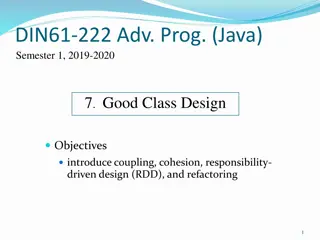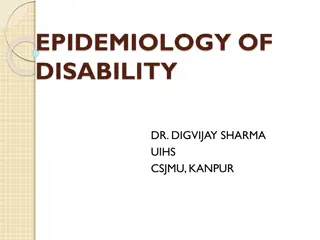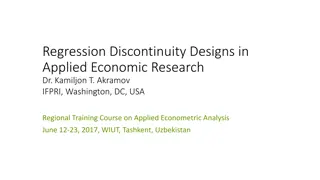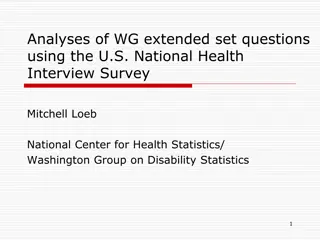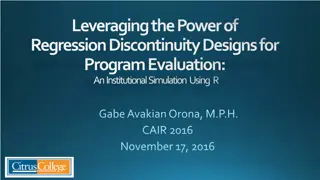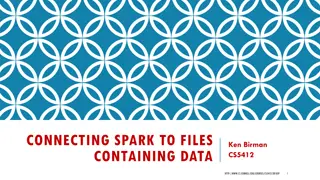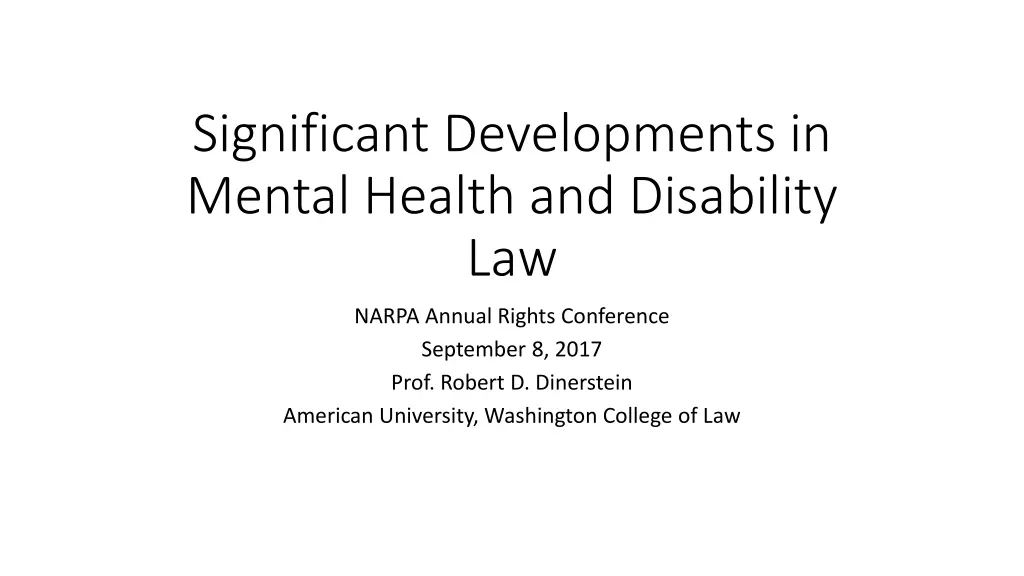
Developments in Mental Health and Disability Law at NARPA Conference
Explore significant legal cases and discussions in mental health and disability law, including Supreme Court cases and Court of Appeals rulings. Stay updated on critical issues affecting individuals with mental health challenges and disabilities.
Download Presentation

Please find below an Image/Link to download the presentation.
The content on the website is provided AS IS for your information and personal use only. It may not be sold, licensed, or shared on other websites without obtaining consent from the author. If you encounter any issues during the download, it is possible that the publisher has removed the file from their server.
You are allowed to download the files provided on this website for personal or commercial use, subject to the condition that they are used lawfully. All files are the property of their respective owners.
The content on the website is provided AS IS for your information and personal use only. It may not be sold, licensed, or shared on other websites without obtaining consent from the author.
E N D
Presentation Transcript
Significant Developments in Mental Health and Disability Law NARPA Annual Rights Conference September 8, 2017 Prof. Robert D. Dinerstein American University, Washington College of Law
Cases to Discuss A. Supreme Court Cases from 2016-17 Term Fry v. Napoleon Community Schools, 137 S. Ct. 743 (Feb. 22, 2017) Endrew F. v. Douglas Cty. Sch. Dist. RE-1, 137 S.Ct. 988 (Mar. 22, 2017) Moore v. Texas, 137 S. Ct. 1039 (Mar. 28, 2017) McWilliams v. Dunn, 137 S. Ct. 1790 (June 19, 2017) B. Supreme Court Petition for Certiorari pending, 2017-18 Term 1. Magee v. Coca-Cola Refreshments USA Inc., No. 15-31018 (Cert. pet. filed Nov. 11, 2016) 1. 2. 3. 4.
Cases to Discuss (if time) C. Court of Appeals cases 1. J.M. v. Francis Howell Sch Dist. (8thCir. 3-7-17) (post-Fry)(parents argued excessive use of seclusion and restraint on student (ADHD, ASD, anxiety). Denied modalities designed to help him benefit from instruction. First complaint mentioned IDEA, second one did not. Exhaustion required. 2. M.C. v. Antelope Valley Union High Sch. Dist., 852 F 3d 840 (9thCir., 2017)(post-Endrew F.)( The school must implement an IEP that is reasonably calculated to remediate and, if appropriate, accommodate the child s disabilities so that the child can make progress in the general education curriculum taking into account the progress of his non- disabled peers, and the child s potential. )
Cases to Discuss (if time) 3. sued prison mental health care providers when inmate, who was mentally ill, committed suicide while in solitary confinement. Reverse district court judgment. Deliberate indifference to inhumane conditions he experienced and to his medical need for mental health care). 4. Sunderland v. Bethesda Hospital, 11thCir., 4-27-17 (Various deaf patients not provided with in-person interpreters (sometimes note pad and paper, sometime VRI that worked sporadically). Deliberate indifference standard for 504 damages. Limited injunctive relief for pls. who could not show they would use hospital again) Palakovic v. Wetzel, 3d Cir., 4-4-17 (estate of mentally ill inmate
Cases to Discuss (if time) 5. with breast cancer because she did not identify major life activities or bodily functions the cancer affected; have to do so under post-2008 ADAAA unless using regarded as prong) 6. Williams v. AT&T Mobility Services, 847 F. 3d 384 (6th Cir. 1-27- 17)(plaintiff, former call center customer service representative with anxiety and depression, could not show she could meet essential functions of the postiion absenteeism, etc.) 7. Ewing v. DoubleTree DTWC, LLC, 10thCir., 12-14-16)(employer had no knowledge of person s mental impairment not enough that her physician thought she seemed a bit slow because information was not conveyed to employer prior to litigation. Disability not obvious and could not prove harassment, disability-based animus) Alston v. Park Pleasant, Inc. (3d Cir., 2-15-17) dismiss case of plaintiff
Cases to Discuss (if time) 8. judg to school district; teacher with PTSD claimed failure to accommodate because she asked to be transferred to special ed class with less aggressive students; no engagement in interactive process) Lawler v. Peoria Sch Dist No. 150 (7thCir. 9-16) (denied sum
Fry v. Napoleon Community Schools Argued by Sam Bagenstos for the Frys; Neil Katyal for the school district Ehlena, a little girl with CP, and Wonder, the goldendoodle who her parents wanted her to be able to bring to school as a service animal. Issue: Must a party exhaust IDEA administrative remedies if it seeks relief unrelated to FAPE under other anti-discrimination statutes (ADA, 504) Court unanimously holds (Kagan, J.) exhaustion not required. Look to the gravamen of the complaint. Suggests that if (1) the relief sought could be obtained by making the claim against a non-school public entity (e.g., access to the building) and (2) if the claim could be made at the school by a non-student/parent (that is, someone not covered by IDEA), then it is not wolfish FAPE in sheep s clothing (my words)
Fry v. Napoleon Community Schools, cont. Alito (with Thomas) concur in part and concur in the judgment. Do not find the two hypothetical inquiries helpful (and also reject the idea that if the plaintiff originally files under IDEA it might suggest this really is a complaint about failure to provide FAPE).
Endrew F. v. Douglas Cty. Sch. Dist. Endrew F., young boy with autism. Parents believed school did not address his behavioral problems adequately Represented at Supreme Court by Stanford Supreme Court litigation clinic (Jeffrey Fisher argued); Neil Katyal for the school districy\t Unanimous opinion (Roberts, CJ) Revisiting the Rowley standard of some [meaningful] educational benefit Court rejects the more than de minimis standard the school district and lower court proffered
Endrew F., cont. Court also does not accept the petitioners argument that school district must provide an education that aims to provide a child with a disability opportunities to achieve academic success, attain self- sufficiency, and contribute to society that are substantially equal to the opportunities afforded children without disabilities. Standard rejected in Rowley; does not buy argument that later amendments to IDEA enhanced the standard. Doesn t find meaningful as an adjective helpful either. Some benefit vs. some benefit
Endrew F., cont. Holding: For an IEP to provide FAPE, it must be reasonably calculated to enable a child to make progress appropriate in light of the child s circumstances.
Endrew F., cont. Consistent with lower-court cases over the years that have distinguished Rowley, and its seeming minimal requirements, as related to her high level of achievement, not the typical special education case. See Mark Weber, The Transformation of the Education of the Handicapped Act: A Study in the Interpretation of Radical Statutes, 24 U.C. Davis L. Rev. 349 (1990)
Moore v. Texas 5-3 decision (Ginsburg for majority; Roberts, CJ, with Alito and Thomas, dissenting) Progeny of Atkins and Hall Reiterates that states are not free to ignore relevant medical (sic) opinion. Here, Texas wrong not to take into account most recent version of AAIDD manual (11thed.), which, among other things, did away with the prior requirement that there be a connection shown between the person s cognitive and adaptive deficits IQ was slightly over 70 so within SEM required to be considered in Hall.
Moore v. Texas, cont. Reject lower-court view that petitioner s adaptive strengths (e.g., his adjustment to prison) negated his limitations in adaptive area. Majority says professionals focus on adaptive limitations Possibility that his adaptive problems were caused by other factors (childhood poverty, head trauma, abuse) far from disqualifying, these are risk factors for ID Firmly rejects Briseno factors (so-called Of Mice and Men factors); not the dissent also rejects use of these factors.
McWilliams v. Dunn 5-4 decision (Breyer); dissent by Alito (with Roberts, Thomas, and Gorsuch) Interpretation of Ake v. Oklahoma: The state must provide a defendant with access to a competent psychiatrist who is sufficiently available to the defense and independent from the prosecution who will conduct an appropriate examination and assist in evaluation, preparation, and presentation of the defense.
McWilliams v. Dunn Majority does not reach the question (on which cert. was granted) of whether defendant is entitled to its own independent expert, as opposed to a so-called neutral expert. Says even without that state did not meet requirements of Ake (provided an expert evaluation two days before the judicial sentencing hearing) Dissent: rule not clearly established; majority did not address issue on which cert. was granted and did address question on which review specifically was not granted The world of death penalty trials in the south. . .
Magee v. Coca-Cola Refreshments USA, Inc. Opinion below, 833 F. 3d 530 (5thCir. 2016) Cert. petition filed (by U VA Supreme Court litigation clinic), Nov. 11, 2016 SG brief opposing cert. filed, July 19, 2017 Distributed to conference, August 2, 2017 To be considered at conference, September 25, 2017 Issue: is Title III of the ADA limited to physical spaces? Possible implications for whether Title III extends to the internet and the web
Other developments Whither DOJ/CRD? From ADA Olmstead page: https://www.ada.gov/olmstead/index.htm End of Obama administration (12-21-16). Letter of Findings to Louisiana re its use of nursing homes for people with serious mental illnesses; Olmstead issue) Georgia Network for Educational and Therapeutic Support and US v. Georgia (US complaint filed 8-23-16). Unnecessary segregation of children with behavioral challenges in need of mental health and therapeutic education services Nothing posted in 2017
Other developments, cont. US v. New York (EDNY adult care homes] US, plaintiff class (plaintiffs with mental illness in adult homes), and defs. agree to second amended settlement agreement on May 4, 2017, entered by court on May 18, 2017.[Jennifer Mathis has the info nothing to do with the change in administration ] Voluntary compliance agreements?
Other developments, cont. ADA Education and Reform Act off 2017 HR 620 the burden of protecting the right to access a public place is shifted to the person with the disability, who first has to be denied access; then must determine that violations of the law have occurred; then must provide the business with specific notice of which provisions of the law were violated and when; and finally, the aggrieved person with the disability must afford the business a lengthy period to correct the problem. Regulatory slowdown 8-24-17, ED seeking input on regs that might be overly burdensome
The End Thank you rdiners@wcl.American.edu













